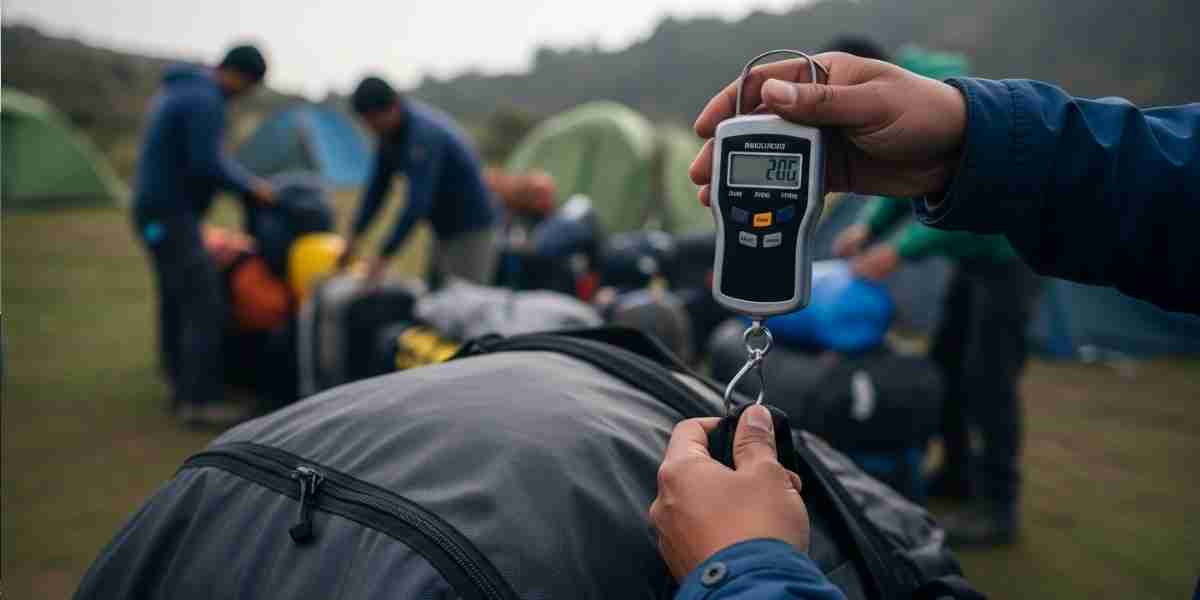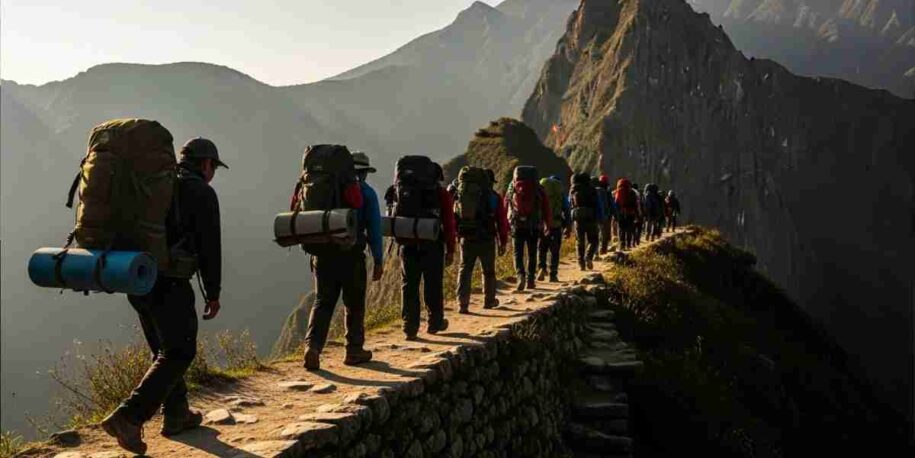The very soul of ethical trekking in Peru lies not on the ancient stones of the trail, but in the wellbeing of the team that makes your entire journey possible. They are the first to break the quiet of the pre-dawn mountain, a line of determined silhouettes moving against the nascent light while you are still warm in your sleeping bag. They are the last to rest, their work a soft murmur in the camp kitchen long after the day’s hike is done. These men, the porters of the Andes, are the true architects of your expedition. For this reason, the most critical decision you’ll make is not what to pack, but which company you trust to support the team on the ground. That choice defines the entire experience.
It’s one thing to see a photo of a porter on the trail. It’s another to stand at a pass like Warmiwañusqa—the «Dead Woman’s Pass»—at 4,215 meters ( feet), gasping for air in the thin, sharp atmosphere, and watch them move past with a quiet strength that is both humbling and awe-inspiring. They aren’t just carrying gear; they are carrying a legacy of resilience, the modern embodiment of the Chasquis, the Inca empire’s fleet-footed messengers. Their work is immensely demanding, a physical feat that commands profound respect. And that respect, in our industry, must be demonstrated through action, not just words.
The unfortunate truth is that not all travel companies view it this way. For some, porters are a commodity, a means to offer a cheaper price tag. This can lead to exploitation: overloaded packs far exceeding the legal 20kg limit, insufficient food, inadequate shelter against the biting mountain cold, and wages that do not honor their immense contribution. This is the unseen side of the trekking industry, and it’s a reality the conscious traveler must be aware of.
✨ An Expert’s Perspective: The Questions You Must Ask Before you book any trek, ask the operator direct questions. Their answers (or lack thereof) will tell you everything.
- «Can you confirm that your porters’ packs are weighed and never exceed the legal limit?»
- «What specific gear do you provide for your porters (e.g., proper hiking boots, warm jackets, shelters)?»
- «Can you tell me about the meals and sleeping conditions for your porter team?»
- «Do you have a specific porter welfare policy you can share?» A transparent company will welcome these questions and answer with pride and detail. A company that hedges or dismisses them is raising a red flag.
The Anatomy of an Ethical Operation
So, how do you distinguish the truly responsible operators from those who simply use «ethical» as a marketing buzzword? The signs are clear if you know what to look for. Genuine commitment to porter welfare in Peru is woven into the very fabric of a company’s operations.
It begins with fair, living wages paid on time. It includes comprehensive health insurance for the entire team. It means providing high-quality, nutritious meals designed for the strenuous work they perform—the same quality of food our travelers enjoy. It means ensuring every porter has proper equipment, from waterproof hiking boots that protect their feet to warm sleeping bags and mats that guarantee a restorative night’s sleep.
I remember once, on a less-traveled route, we passed a team from another agency huddled under a makeshift plastic tarp during a freezing downpour. Their shoes were torn, their jackets thin. Later that evening, in our own camp, I watched our team, dry and warm in their dedicated dining tent, sharing stories over a hot meal. The contrast was not just about comfort; it was about dignity. That is the difference you are investing in when you choose a truly ethical company. It’s a commitment that goes far beyond the trail, often supporting the porters’ families and communities through social projects.For a truly unforgettable journey, understanding the logistics and regulations of the routes is key; you can learn more about what a trek entails in our ultimate guide to the Inca Trail to Machu Picchu.

What is the criteria for choosing a company for ethical trekking in Peru?
Responsible travel in the Andes is not a passive choice; it’s an active one. Your decision sends a powerful message that ripples through the local economy and culture. By prioritizing ethics, you champion a model of tourism that empowers, rather than exploits. You ensure that your unforgettable memory does not come at the expense of someone else’s wellbeing.
🛡️ Your Journey, Seamlessly and Ethically Executed: When you choose an operator committed to these principles, you are also choosing peace of mind.
- Guaranteed Fair Treatment: You can rest assured that every member of your support team is respected, well-paid, and properly cared for.
- A Positive Team Atmosphere: A happy, well-supported team creates a wonderful and positive atmosphere on the trail. Their genuine smiles and encouragement are part of the magic.
- Focus on Your Experience: Knowing the logistics are handled with integrity allows you to fully immerse yourself in the journey—the history, the landscapes, the personal challenge.
Your trek through the Andes will be one of the most memorable experiences of your life. The landscapes will leave you breathless, and the history will capture your imagination. But the deepest connection you make might just be the quiet respect you feel for the unsung heroes of the trail. By choosing wisely, you honor their work and become part of a more just and sustainable way to explore this incredible corner of the world.
Charting Your Course with Integrity
The journey you are contemplating is more than a simple vacation; it’s an expedition of spirit and discovery. Ensuring that your adventure is built on a foundation of respect and fairness is the first, and most important, step.

